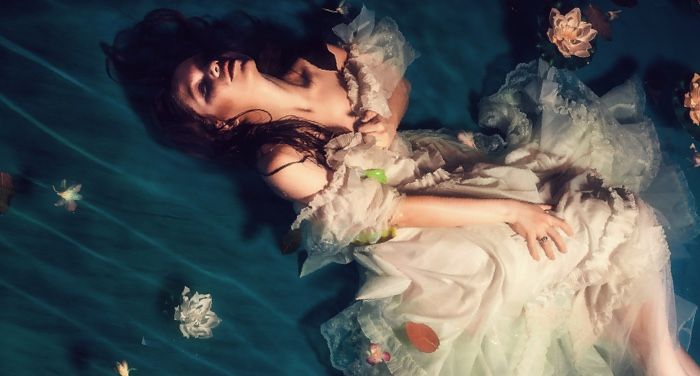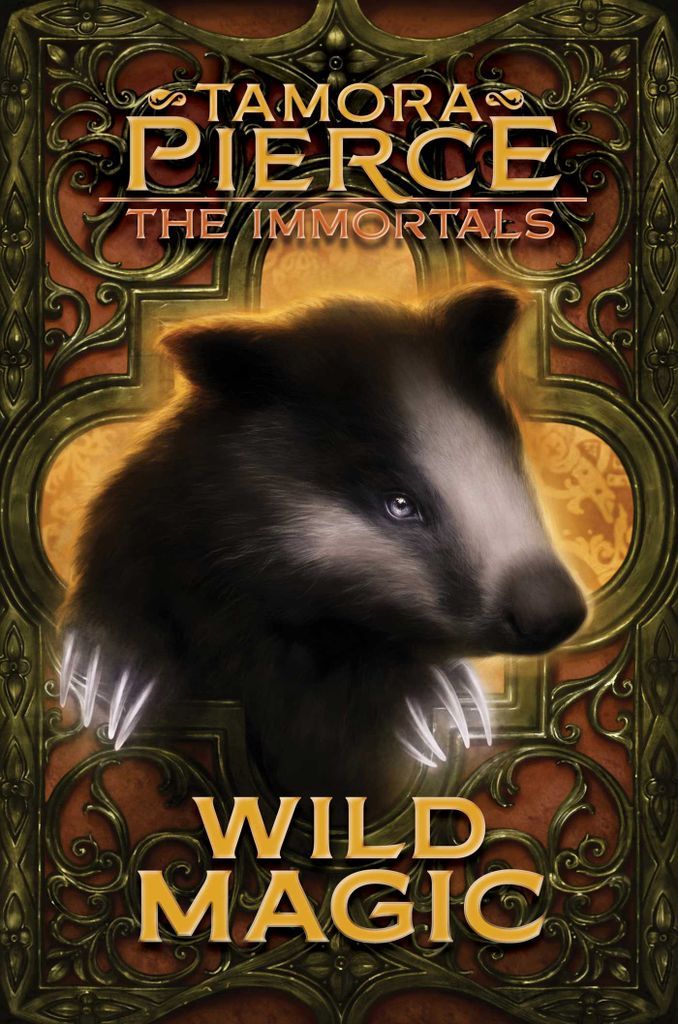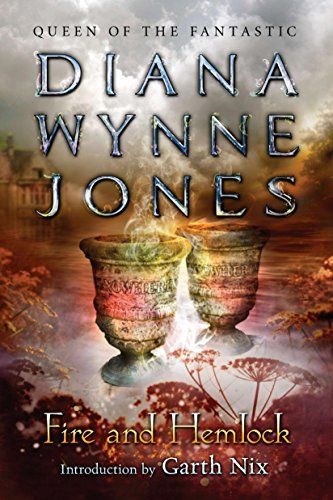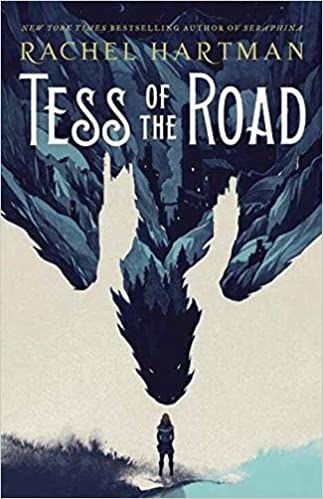
How Do We Feel About Age Gaps in Fantasy?
When I was a preteen, I found Tamora Pierce’s Tortall books, and I fell hard and fast for this fantastical world. I inhaled The Song of the Lioness Quartet and was delighted to discover that Pierce had written another quartet set in the same world: The Immortals. In the first book in the series, Wild Magic, a young teen named Daine possesses the ability to speak to animals. Her magic draws the attention of the royal court of Tortall, and soon Daine finds herself under the tutelage of a master mage named Numair. At the start of the series, Daine is just 13 while Numair is 27. But by the final book, Daine is 17 and she finds herself falling for her tutor, whom she has shared a close relationship with for four years. Their romance springs up in a way that feels both inevitable and unexpected. At age 12, I thought it was the most romantic development ever.
At age 30, I have some questions.

Was the romance always planned from the beginning of the series? Did it never occur to literally anyone who read the book(s) before publication that maybe the best love interest for our young protagonist isn’t…someone more than a decade older than her and also her teacher? Why is it a source of speculation to all the other adults in the series that Numair might be sleeping with his much-younger protege before he actually declares his feelings and not presented as something deeply weird or cause for concern?
Let’s just say that Numair and Daine’s age difference hits differently as someone who has been both Daine’s age and Numair’s age. And I gotta say, the idea of getting with a teenager in my early thirties is a major NOPE from me, no matter what the circumstances might be.

This isn’t to single out Tamora Pierce (whom I love and whose books are among my favorite and most formative), because she’s not the only one who has written a huge age gap into a fantasy novel, not by a long shot. The other prominent example from a book I loved as a teen is Fire and Hemlock by Diana Wynne Jones, which is a delightfully strange and chaotic book about Polly, who realizes as she is on the cusp of adulthood that she has two sets of conflicting memories stretching back to her childhood, and that some magical force is trying to get her to forget Tom, whom she loves. This is…awkward to say the least given that Polly was 10 when she meets Tom and he is a grown adult man with a wife. They strike up a correspondence and by the time Polly is nearly grown she realizes she’s in love with him (he’s separated from his wife at this point, who, by the way, is totally evil)…but she has to fight to keep her memories of him from being erased in order to declare her love.
It might be easy to write off these big age gaps in fantasy as a quirk of the 1980s and 1990s, but of course fantasy age gaps have persisted ever since then — Alec and Magnus in Cassandra Clare’s Shadowhunters books, Bella and Edward (and then Jacob and Reneesme) in the Twilight series, Rhysand and Feyre in A Court of Thorns and Roses. Some of these examples really lean into the fantasy aspect of the story and star immortals falling for mortals, so while tens (or hundreds) of years may exist between characters, they appear to be the same age and the weirdness is less noticeable…you might even forget about it in the moment. But I think it’s worth noting because another thing I can’t help but notice is that the older partner is usually the male in these heterosexual relationships, and I wonder: What are the power dynamics?
Age gaps in fiction don’t bother me when both parties are fully adults and enter into a relationship willingly and with full awareness of what is happening, so they’re both able to give consent. Age of consent varies in the real world and I’m not really interested in arguing what specific age it should be, but power dynamics are a very real consideration both IRL and in fantasy. Who has the power in the relationship? Is it the older partner? No matter how loving or kind the older partner might be, does the much younger partner have the autonomy to enter into the relationship with eyes wide open and be seen as an equal partner and make decisions about their participation in the romantic relationship without being swayed consciously or subconsciously by the other partner? Can they leave at any time without any attempts to sway their opinion or social or personal persecution? These are all elements that I think ought to be explored in any fictional relationships with big age gaps, and unfortunately they don’t tend to be given a lot of space in fantasy novels — or at least, not in the same way as contemporary or realistic novels with large age gaps tend to do.
I don’t want to rain on anyone’s fantasy book parade, because I do love The Immortals series and Fire and Hemlock is a deeply weird and fascinating book I enjoy revisiting every few years. And I can already imagine many reading this going, “It’s a FANTASY novel, calm down!” Which, okay. Far be it from me to judge what anyone enjoys in a fantasy romance! But I do think authors ought to at least be thinking about these implications of large age gaps in fantasy romance, and while adult readers can read and enjoy whatever they like in romance, I think these considerations are especially important when it comes to books written and marketed for younger readers. Call me old-fashioned, but I do think authors writing for teens and kids have a responsibility to question unhealthy relationships and not sell young readers on unrealistic or unhealthy relationship models.

While we can argue that fantasy worlds are fantasy and not the real world, real world readers consume them. Real world readers bring their own perspectives to these fantasy novels, and fantasy characters can feel real to readers. I don’t think that we should necessarily avoid large age gaps totally, but I do think that these gaps should be addressed thoughtfully. If it can be done in realistic fiction, why not fantasy? More recently, I read Tess of the Road by Rachel Hartman which features an age gap in a romantic relationship — and I’d argue that it is the only one I’ve read in fantasy that does it well. Hartman doesn’t shy away from the age gap, and she takes times to show the characters getting to know each other on a genuine level. The younger person has a lot of autonomy to walk away from the situation at any time, and the relationship is built on a point of connection wherewith parties are on equal footing. Consent is modeled beautifully across multiple scenes, and ultimately the relationship proves to be quite healing and healthy for both parties. That is the kind of age gap romance treatment I’d love to see more of in fantasy — grounded in realistic conversations, transparent, unassuming, with plenty of conversations about feelings and consent.













